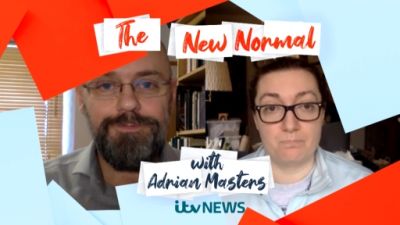Should more people be allowed to freeze their eggs on the NHS due to delays caused by pandemic?

A former Conservative special advisor said those in charge should be creating more opportunities for people in their thirties to freeze their eggs on the NHS.
Lauren McEvatt said it would be important to push for this because the pandemic is having a "really big impact" for women hoping to find a partner and have children.
Speaking on The New Normal with Adrian Masters podcast, Lauren, who now manages a consultancy company, said, "If I was in charge of public policy in relation to women in healthcare right now, I would be pushing for women in the five year age bracket from 33 to 38 to be given the opportunity to freeze their eggs on the NHS - to reduce the burden cost on IVF multiple rounds when we're in our early forties - because it's going to have a really big impact on the ability for women of my age to find someone to marry and have children."
Listen to The New Normal with Adrian Masters:
In Wales, those who are under 40 and who meet the access criteria are entitled to two cycles of IVF.
However, if the woman reaches the age of 40 during the first cycle of treatment, they will not be entitled to a second cycle of IVF. Women aged between 40 and 42 (up to their 43rd birthday) who meet the access criteria are entitled to one cycle of IVF provided they have never previously had the treatment, there is no evidence of low ovarian reserve and there has been a discussion of the additional implications of IVF and pregnancy at this age.
One cycle of IVF can cost around £5,000. Currently, people pay around £8,000 to have their eggs frozen for ten years - which would make it £2,000 less than two IVF cycles. The treatments cannot guarantee successful pregnancy.
Speaking on the podcast, Miss McEvatt said she is looking forward to physical contact and dating when it is safe to do so.
"As a single woman in my mid-thirties, these are the five years where I was supposed to be trying at least in some respects to find someone to have a child with."
More than 1,300 people have signed a petition calling on the UK Government to extend the limit on how long frozen eggs are kept. Currently, they can be stored for 10 years.
At the moment, people in Wales are offered oocyte or embryo cryostorage (egg freezing) when they are preparing for treatment that is likely to make them infertile - if it is appropriate and it will not worsen their condition.
Lauren McEvatt said if more women were offered this procedure on the NHS, it would be likely to save money in the long run.
Andrea Byrne on her infertility journey and why she's launching a new podcast to address the taboo
Fertility rate drops in Wales as number of babies being born at record low
How long can human eggs be stored for and how much does it cost?
Lauren McEvatt said there are several ways in which women have been disproportionately impacted by the pandemic.
"If you have a long term view of what the effects of this pandemic are on society as a whole, more women have been negatively impacted by the requirement to be homeschooling. More women are likely to be long term impacted by the changes to the work environments that are coming because more women are likely to want to either be at home or have been negatively impacted by managerial changes within the workplace from home working, that's going to be a very big problem."
Former Welsh Government advisor Matt Greenough joins Lauren McEvatt and Adrian Masters on the podcast. They discuss the upcoming Senedd elections, how the governments have been handling the pandemic, conspiracy theories and much more.
More from The New Normal: